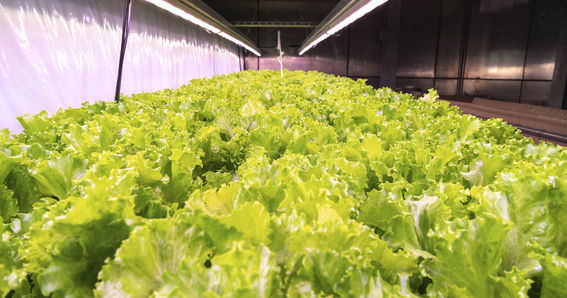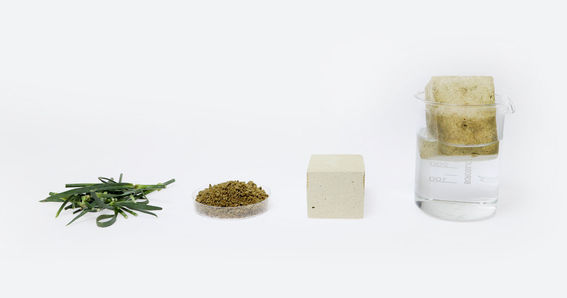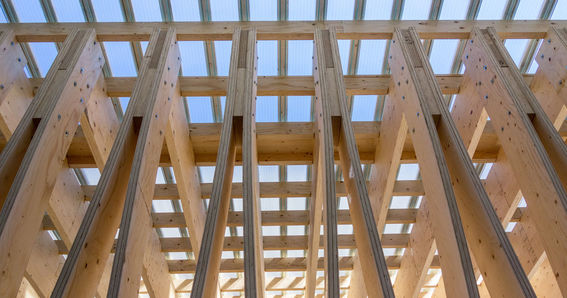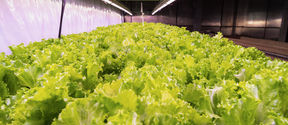Accelerating the global energy transition: Clean energy demands socially just policies
In this series of blog posts, Aalto experts share their views on the climate crisis ahead of the UN COP26 climate summit held in November 2021.

Renewable energy is at the core of sustainable development, but policy, technology, and practice must be aligned to accomplish the shift to clean energy.
Fully decarbonising energy systems is a challenge that calls for transformative policies that can coordinate decisions from individual consumption choices to national systems of production and distribution.
‘Carbon pricing in a socially just way seems to be a key policy measure to enable the transition,’ says Aalto University Professor Peter Lund, co-chair of Science Advice for Policy by European Academies, which provides scientific advice to European Commissioners. ‘Considering the magnitude of the change it will be necessary to put people at the centre of the policies.’
These policies must also be combined with innovative energy storage technologies that can move quickly from research labs into broad use. With roughly 30 million electric cars expected on the roads of the EU by 2030, the manufacture and disposal of batteries is a pressing concern. Finland is one of only a few countries with world-class expertise throughout the entire life cycle of batteries, from mineral mining and extraction to recycling spent batteries.
Recent research from Aalto University showed that the carbon footprint of raw materials recycled from batteries was 38% smaller than virgin production, and further improvements could be gained by if copper and aluminium were recovered during mechanical pre-treatment. The analysis went beyond merely quantifying the benefits of recycling; it also identified ways in which the recycling process could be improved. By showing how certain parameters affect the environmental impact of recycling, these findings can guide the decisions of policy-makers and commercial recycling ventures.
The work was conducted under the aegis of BATCircle, a Finnish research consortium that aims to make batteries more sustainable by developing a circular ecosystem of battery metals.
‘Through improved metal refining, more efficient recycling, and greater cooperation between companies and research organizations, we’re working to make batteries a more sustainable and environmentally friendly technology,’ says Sipi Seisko, the project manager of BATCircle2.0 at Aalto University.
‘To reach the Paris Climate Agreement target, the global emissions need to be halved every ten years from now. The energy transition ahead will need massive investments in renewable energy, even taking into account increases in energy efficiency,’ says Lund.
Aalto University experts available to comment on following topics:
Energy policy
Peter Lund, professor of advanced energy systems, co-chaired the energy project of the Science Advice for Policy by European Academies, which in its report to the European Commission in June 2021 outlined a series of evidence-based policy options for a transition to a carbon-neutral Europe. His research focuses on multidisciplinary approaches to sustainable energy systems. In the past, he has chaired several energy-related high-level European working groups and served on the board of businesses and R&D organisations in the EU and China.
peter.lund@aalto.fi
tel: +358405150144
Battery recycling
Sipi Seisko is a doctor of science in technology working on hydrometallurgy and corrosion. His doctoral research was about developing more environmentally friendly methods of extract gold, and he is now the project manager of BATCircle2.0.
sipi.seisko@aalto.fi
Mari Lundström, professor of metallurgy, is working to make metal production more efficient and improve our ability to recycle metals. Lundström worked in the hydrometallurgical industry for seven years before returning to academia. Her research is done in close collaboration with industry and has resulted in several patent applications. She is the principal investigator of the BATCircle research ecosystem, which focuses on supporting a circular battery economy through improved refining of battery metals and increased recycling.
mari.lundstrom@aalto.fi
+358404873434
Advanced energy solutions | Aalto University
The main research foci in energy research are energy sciences, multidisciplinary energy technologies, and sustainable energy solutions.
Visit (www.aalto.fi)
We could feed ten billion people – research offers paths past the climate crisis | Aalto Blogs
Carbon emissions often dominate discussions about our environment, but feeding our growing population creates broader environmental problems
Visit
Delivering the practical solutions needed to adapt to climate impacts – Bio-based materials could move us beyond plastic | Aalto Blogs
By processing lignin, cellulose, and other plant matter into new bio-materials, research is opening paths to sustainable alternatives.
Visit
Advancing climate actions in the places we live: Designing cities to store carbon | Aalto Blogs
Simple changes in urban planning can reduce carbon emissions and increase carbon storage, offering tools to help meet emissions targets.
Visit
Show other posts from this blog

Why can’t companies and governments meet sustainability goals – and what can be done?
Antiquated business models and ambiguous policies hinder efforts towards sustainable development.
Advancing climate actions in the places we live: Designing cities to store carbon
Simple changes in urban planning can reduce carbon emissions and increase carbon storage, offering tools to help meet emissions targets.
Delivering the practical solutions needed to adapt to climate impacts – Bio-based materials could move us beyond plastic
By processing lignin, cellulose, and other plant matter into new bio-materials, research is opening paths to sustainable alternatives.